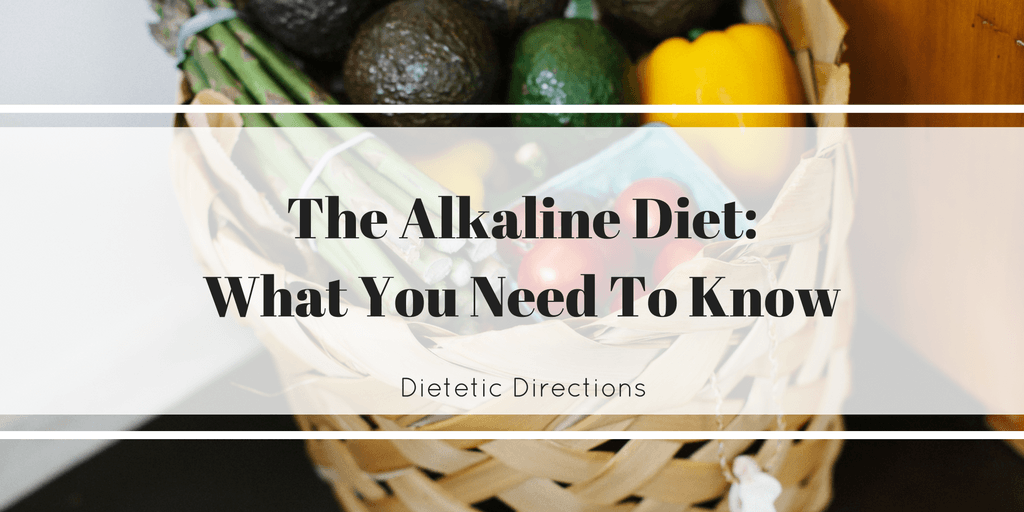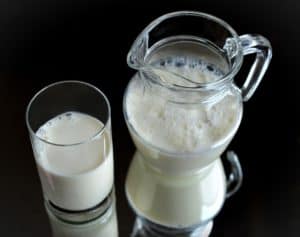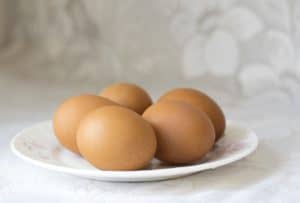
The Alkaline Diet: What you need to know!
Did you catch the recent article, “the celebrity diet that actually has some science behind it,” in the Washington Post? This article got many people debating the merits of the alkaline diet. Today, we will take a closer look at this diet, break down the science and provide a nutrition review.
What is the Alkaline Diet?
The alkaline or “acid-alkaline” diet proposes that “acid-producing” foods such as meat, fish, dairy products, sugar, caffeine and grains make the body acidic, which can lead to weight gain, diabetes, heart disease, osteoporosis and even cancer. Therefore, the theory is that by increasing the intake of “alkaline” (or basic) foods like fruits and vegetables, you can restore the body’s equilibrium and improve energy, weight loss and prevent chronic diseases. Sound too good to be true?
Three Facts to Get Straight:
- There’s no evidence to support that alkaline diet can prevent or cure chronic disease or cancer.
- The foods we eat cannot change the pH level of body cells and blood, which remains tightly controlled at around 7.4 to keep us alive.
- The fact that certain foods can change pH of urine is not a reliable indicator for health outcomes. Instead, the fact that urine pH changes is a sign that our kidneys efficiently excreting waste to maintain equilibrium.
Some Good in the Alkaline Diet?
The typical ‘Western diet’ tends to be high in processed foods and meats and low in fruit and vegetables. Increasing fruit and vegetable consumption helps to boost potassium intake, which helps protect from high blood pressure and stroke. Consuming more veggies is also important because we tend to not get enough. At least this diet encourages people to decrease processed foods and eat more fruits and veggies!
Major Nutritional Shortcomings:
Strict adherence to the alkaline diet can cause lack of essential vitamins and minerals and fibre. After all, you’d basically be eating fruits and vegetables, nuts and tofu! This is not to say that you cannot avoid certain foods and still meet your nutritional needs; it’s just that strict avoidance of so many otherwise healthy foods means you may not be receiving your balanced nutrition. Plus, the idea of severely restricting a diet based on unreliable science is troublesome.
Foods Restricted |
Nutritional Considerations |
Health Impacts |
| Meat | Protein intake, B12, iron, zinc | Supports growth, maintenance and repair of red blood cells.
Involved in hormone production, muscle growth and repair, energy status etc. |
| Fish | Omega 3 fats, protein, vitamin D and iron | May help prevent heart disease. Supports infant healthy brain development. May lower risk of cancer, dementia, Alzheimer’s disease and depression. |
| Eggs | Protein, Vitamins A, D, E and B12, riboflavin, selenium and folate. | High-quality protein and low in saturated fat.
Choline is essential for normal functioning of all cells and support brain development in pregnancy. Lutein reduces the risk of developing cataracts and slows the progression of macular degeneration |
| Dairy | Calcium, vitamin D, magnesium, B12, vitamin A, phosphorous and potassium | Calcium prevents against osteoporosis, helps in formation of teeth. Magnesium helps guard against heart disease, Type 2 diabetes and prostate cancer. |
| Grains | Fibre, iron, potassium, B vitamins, magnesium | Prevents cardiovascular disease caused by narrowed or blocked blood vessels. |
Bottom Line:
The foods we eat cannot influence the pH of our cells and blood. Strict alkaline diets restrict otherwise healthy foods without taking into account overall nutritional balance. Chowing down on more veggies and reducing processed foods is always a good idea.
DYK: food cannot influence the pH of our cells and blood Click To TweetCheck out what I had to say to Toronto Star, “Alkaline diet is a bit basic, experts say“



